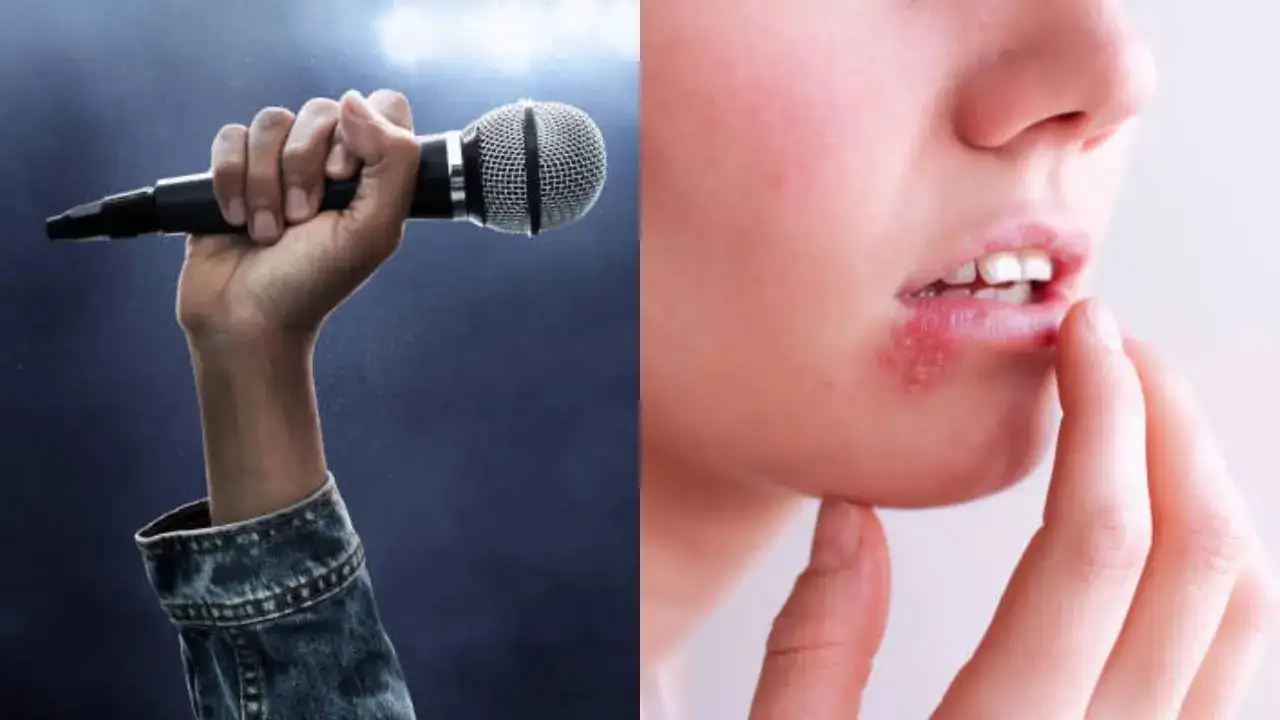
If someone with an active cold sore has used any instrument previously, you could avoid using it or wipe it before use
A fun singing session with friends turned into a nightmare for a young woman who claims to have contracted herpes at a karaoke bar. The woman from Zhejiang in China says she held the microphone for long enough to get the infection. She said she noticed blisters forming around her lips after the night out. Even though she had an extremely swollen, painful, and itchy bump, the woman said she did not think too much of them as they subsided after taking some anti-allergy medication.
However, the blisters resurfaced, after which she went to the doctor, which confirmed the diagnosis of herpes.
“[I have to] carry this virus for life. There is no medication available to treat it. There is only medication to relieve the pain, but the symptoms are recurring,” said the unnamed woman on Douyin, China's version of TikTok. She also said the blisters resurfaced repeatedly around her mouth and nose since the infamous night out, sometimes even appearing on her cheek.
The woman didn't reveal what type of herpes she caught.
Can you catch herpes through a microphone?
According to experts, even though the risk of catching herpes from a microphone is extremely unlikely, if there is concern that someone with an active cold sore has used the instrument previously, you could avoid using it or wipe it before use.
Doctors say the most common way of catching oral herpes is direct skin-to-skin contact with someone with an active cold sore. According to recent figures, it's estimated around 60-70 per cent of the population across the world carries the herpes simplex virus.
What is herpes?
Herpes simplex virus, or HSV, infects many different parts of your body, most commonly your mouth with oral herpes and genitals with genital herpes. It causes fluid-filled blisters that break open and crust over wherever the infection is. According to doctors, it is also possible to have no symptoms and not realise you are infected.
Herpes is highly contagious and spreads from person to person through skin-to-skin contact. A herpes simplex infection occurs when the virus enters your body through your skin and mucous membranes and uses your cells to make copies of itself. Once you get infected, it stays in your body for life. Doctors say it remains dormant but may reactivate and cause outbreaks.
While there is no cure for herpes, treatments can help make outbreaks more manageable while lowering the chances that you will spread the virus to others.
What are the signs and symptoms of herpes?
A few signs and symptoms of an HSV infection, which vary according to the specific type of infection, include:
Oral herpes
It causes blisters on your lips or around your mouth, tingling and itching the skin.
Genital herpes
It leads to severe blisters on and around your genitals, also causing fever, headache, swollen lymph nodes, and itching or tingling in your genital area.
Herpes gladiatorum
It causes blisters anywhere on your skin but usually on your hands, face, ears, or chest.
Herpetic whitlow
It forms blisters on your fingers, discoloured skin around your fingernail, and swelling in your finger.
Herpes keratitis
Also known as eye herpes, it causes extreme pain and irritation in the eyes - feeling like there is something in your eye, sensitivity to light, and blisters on your eyelids or around your eyes.
HSV encephalitis
It causes headaches, fever, focal seizures, and changes in speech or behaviour.
Herpes meningitis
It causes headaches, fever, and sensitivity to light.
Get Latest News Live on Times Now along with Breaking News and Top Headlines from Health and around the world.
